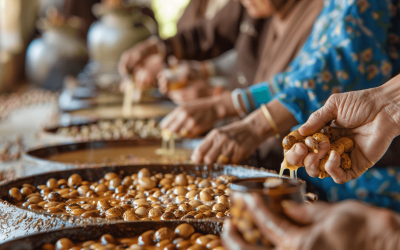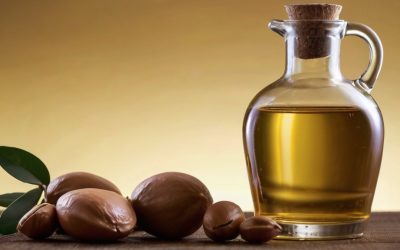
Amira Benhima
A passionate advocate for holistic wellness and natural beauty, is an accomplished author specializing in the benefits and uses of Argan oil, with years of experience exploring its wonders.
Key Takeaways
Are you tired of purchasing skincare products that claim to contain pure argan oil, only to find out that they are diluted or adulterated? Well, you’re not alone. The lack of transparency in the argan oil supply chain is a pressing issue that needs to be addressed. From traceability concerns to governance issues, there are several challenges that hinder the authenticity and quality of argan oil. But fear not, because in this discussion, we will explore the importance of transparency in the argan oil supply chain and how it can benefit both consumers and the communities involved. So, let’s dive into the world of argan oil and uncover the truth behind its production and distribution.
- Transparency in the argan oil supply chain ensures consumer knowledge, fair trade, authenticity, and quality assurance.
- Traceability and ethical sourcing are crucial for purity, consumer trust, and addressing adulteration concerns.
- Quality control and sustainable production practices maintain high standards and promote eco-friendly cultivation.
- Argan oil supply chain transparency supports economic empowerment, informed consumer choices, and environmental conservation.
Importance of Transparency
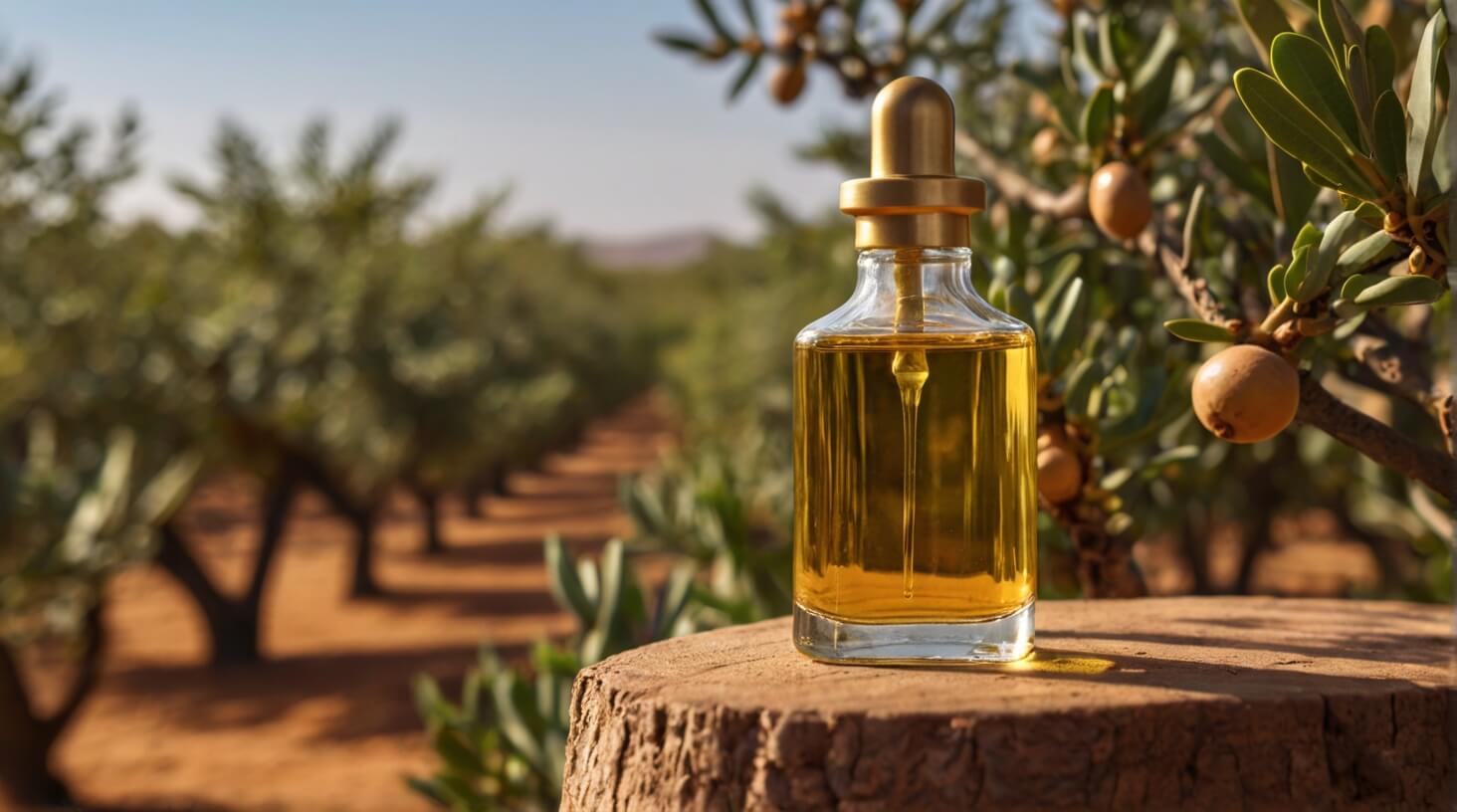
Transparency in argan oil supply chains is essential for ensuring consumers have knowledge about the origin and quality of the product they purchase. It plays a crucial role in promoting fair trade, sustainable development, and a value chain that benefits all stakeholders involved.
One of the key benefits of transparency in the argan oil supply chain is the promotion of fair trade practices. By providing clear information on production practices and ensuring that producers receive a fair price for their labor, transparency enables consumers to support ethical and sustainable production. This fair trade approach helps to empower local communities and supports their economic development.
Furthermore, transparency allows consumers to make informed choices. Access to information about the supply chain ensures that consumers can align their purchasing decisions with their values. This knowledge empowers them to support sustainable and ethical practices, such as organic farming and environmentally friendly production methods.
Transparency also plays a significant role in combating fraud and adulteration in the argan oil market. By providing clear information about the origin and quality of the product, transparency promotes authenticity and quality assurance. This not only protects consumers from purchasing counterfeit or adulterated products but also helps to maintain the integrity of the argan oil industry.
Supply Chain Overview
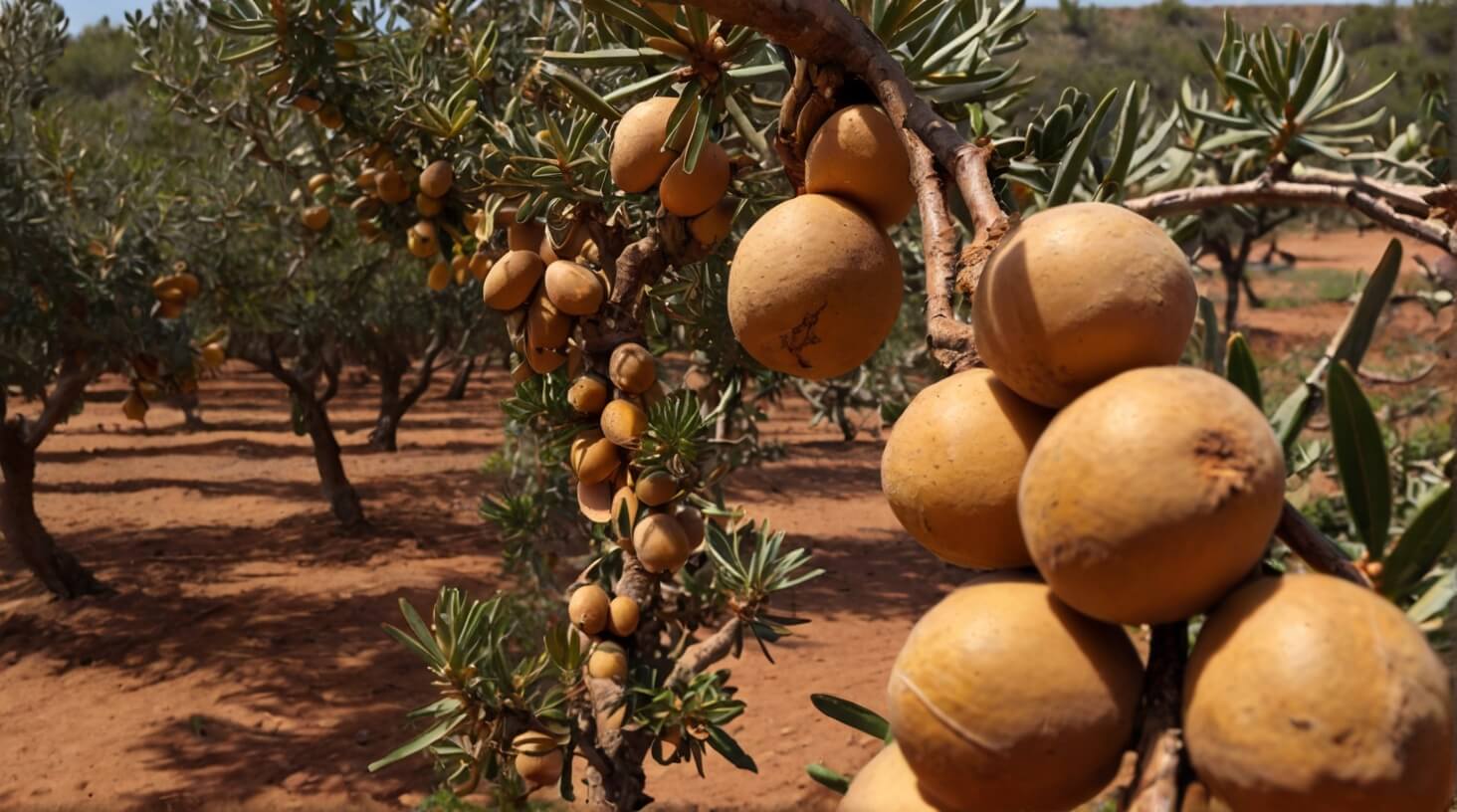
Now let’s take a closer look at the supply chain for argan oil. Three key points to consider are traceability of sources, ethical sourcing practices, and quality control measures. Understanding where the argan oil comes from and how it is produced is essential for ensuring transparency and accountability throughout the supply chain. Additionally, it is important to examine the ethical practices employed by cooperatives and intermediaries to ensure fair trade and support sustainable sourcing. Lastly, implementing robust quality control measures is crucial to maintain the integrity and consistency of argan oil products.
Traceability of Sources
To ensure the purity, authenticity, and adherence to quality standards of argan oil, traceability of its sources is crucial in addressing issues like adulteration and quality concerns in the supply chain. Transparent sourcing practices can help build consumer trust and address market challenges. By knowing the origin of argan oil, producers can verify its ethical and sustainable practices, enhancing accountability and sustainability in the supply chain. Tracking the journey of argan oil from production to market establishes a clear traceability system, ensuring that the oil meets the desired quality standards.
| Benefits of Traceability |
| Addressing adulteration concerns |
| Ensuring authenticity |
| Adherence to quality standards |
| Building consumer trust |
| Verifying ethical practices |
Ethical Sourcing Practices
With a focus on ethical sourcing practices, the argan oil supply chain prioritizes fair wages, sustainable production methods, and community development initiatives. Here are three key aspects of these practices:
- Fair trade certifications: The supply chain ensures transparency and accountability through certifications like Ecocert’s Fair for Life standard. These certifications guarantee that producers receive fair prices for their products and support for collective projects that improve livelihoods and environmental impact.
- Producers: Ethical sourcing practices benefit the producers by providing them with fair wages and support for their communities. This ensures that they can sustain their livelihoods and contribute to the growth and development of their communities.
- Community development initiatives: The development fund associated with fair trade certifications supports projects that enhance the well-being of local communities. These initiatives focus on education, healthcare, infrastructure, and other areas that contribute to the overall development of the communities involved in the argan oil supply chain.
Quality Control Measures
Quality control measures play a crucial role in ensuring the purity, authenticity, and chemical composition of argan oil throughout the supply chain. These measures are essential to guarantee that the oil is free from contaminants, additives, and adulterants, maintaining its high quality. To assess the oil’s quality, various testing methods such as chromatography, spectroscopy, and sensory evaluation are employed. These tests help in evaluating the oil’s chemical makeup and sensory attributes. Compliance with international standards and regulations is also vital in ensuring the production of high-quality argan oil products. By implementing stringent quality control measures, the argan oil supply chain can maintain its reputation as a premium product in the market, serving customers with pure and authentic argan oil.
Sustainable Production Practices
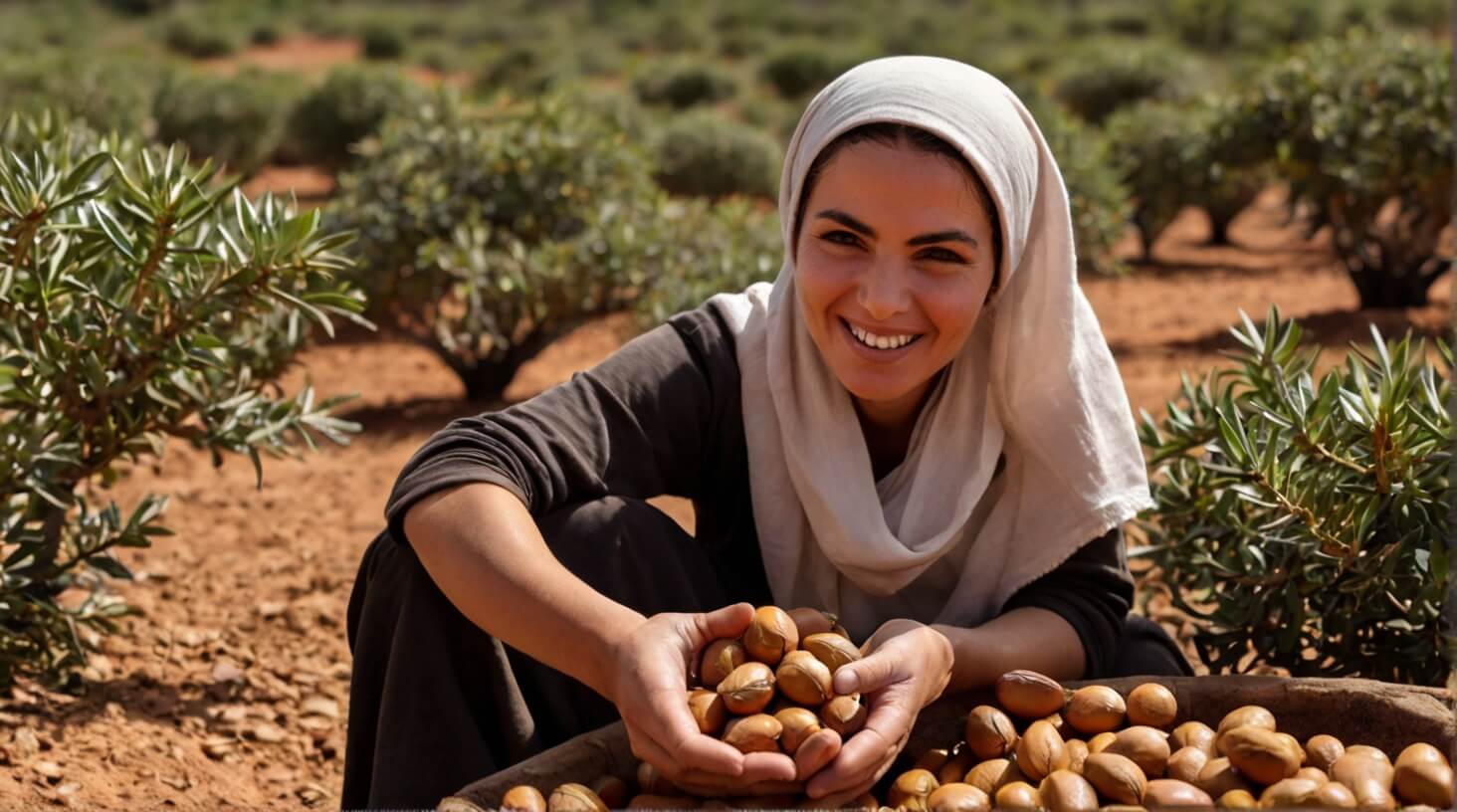
Now let’s talk about the sustainable production practices in the argan oil supply chain. These practices include using eco-friendly cultivation methods and implementing responsible sourcing practices. By utilizing traditional hand-pressing methods and avoiding the use of chemicals, the production of argan oil promotes environmental conservation. Additionally, the involvement of women’s cooperatives and fair trade principles ensures fair wages, ethical treatment of workers, and community development.
Eco-Friendly Cultivation Methods
To ensure the preservation of the argan forest ecosystem and protect biodiversity, producers of argan oil adopt eco-friendly cultivation methods such as organic farming practices and sustainable harvesting techniques. These methods aim to promote environmental sustainability and minimize the impact on the delicate ecosystem. Here are three key practices that contribute to eco-friendly cultivation:
- Organic farming practices: Producers prioritize the use of natural fertilizers and pest control methods, avoiding the use of synthetic chemicals that can harm the environment and contaminate the soil and water sources.
- Sustainable harvesting techniques: Producers ensure the careful and controlled harvesting of argan fruits to avoid overexploitation of resources. This allows for the natural regeneration of argan trees and helps maintain the ecological balance of the forest.
- Water conservation: Producers implement techniques to optimize water usage, such as drip irrigation systems and water recycling. This helps conserve water resources and minimizes the impact on local ecosystems.
Responsible Sourcing Practices
Producers of argan oil prioritize responsible sourcing practices as part of their commitment to sustainable production methods. By implementing fair trade and organic certifications, these producers ensure ethical sourcing practices in the production of argan oil. They also adhere to environmentally friendly harvesting techniques to preserve the biodiversity of the argan forest. Responsible sourcing practices focus on empowering local communities, particularly women, through fair wages and support for sustainable production. The table below provides a visual representation of these ideas:
| Responsible Sourcing Practices |
| Fair trade certifications |
| Organic certifications |
| Environmentally friendly harvesting |
| Support for local communities |
Through fair trade and organic certifications, producers guarantee that their argan oil is sourced responsibly, promoting transparency and accountability in the supply chain. The use of environmentally friendly harvesting techniques further ensures the preservation of the argan tree ecosystem. By supporting local communities, these producers prioritize the well-being of people and the planet, aligning with the values of responsible sourcing practices.
Community Impact and Empowerment
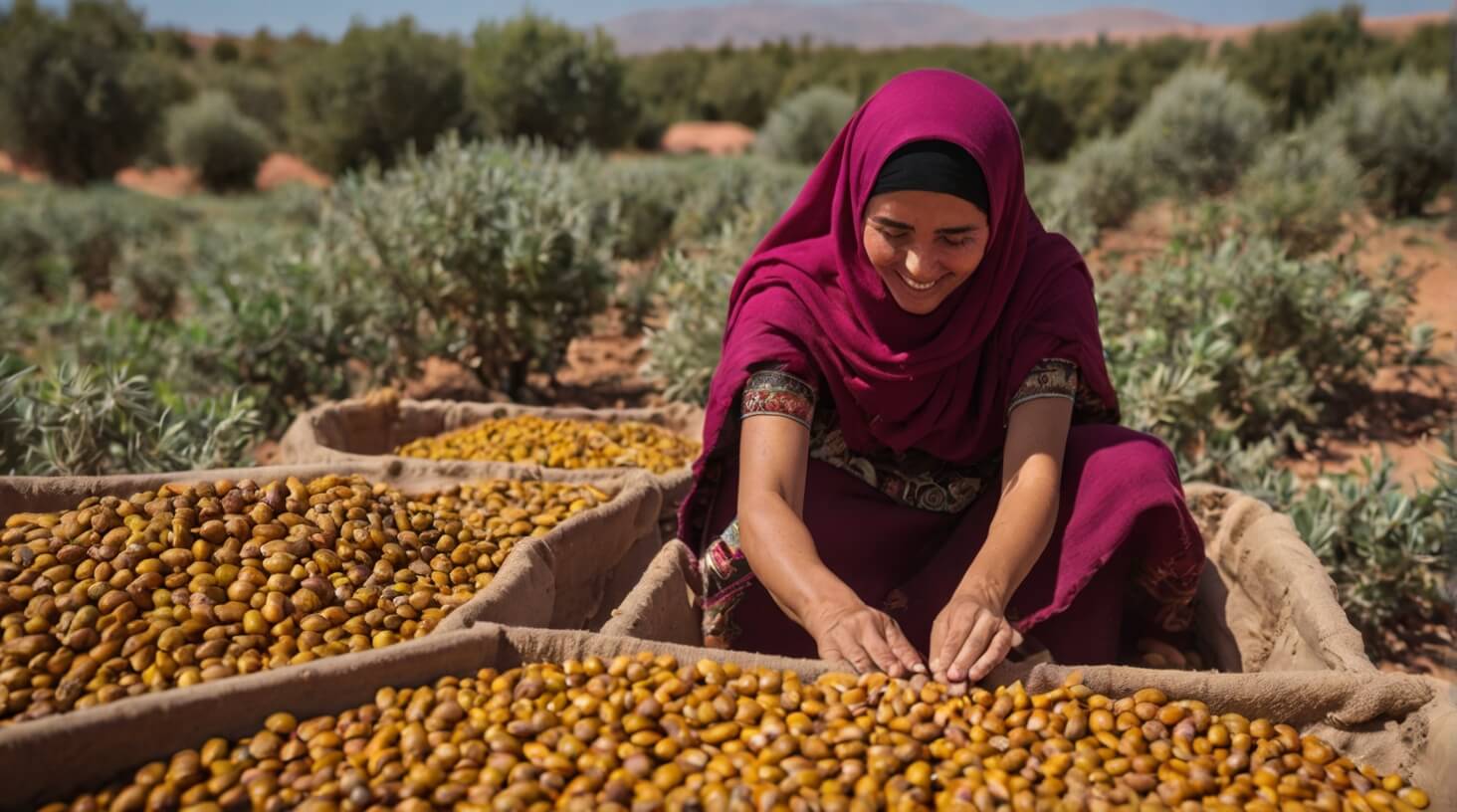
Argan oil cooperatives in Morocco actively empower women through income-generating activities, contributing significantly to their economic independence and overall community impact. These women’s cooperatives play a crucial role in the argan oil supply chain, promoting economic empowerment and uplifting rural communities. Here are three ways in which community impact and empowerment are fostered through these cooperatives:
- Economic Empowerment: By participating in argan oil cooperatives, women gain access to income-generating activities that provide them with financial stability. Through the trade of argan oil, these women are able to support themselves and their families, breaking free from traditional gender roles and achieving economic independence. This economic empowerment has a ripple effect, as it allows women to invest in education, healthcare, and other areas that benefit their entire community.
- Sustainable Development: Initiatives like the Green Morocco Plan recognize the importance of women’s cooperatives in achieving sustainable development goals. By encouraging rural communities to participate in these cooperatives, Morocco aims to enhance economic opportunities and preserve the cultural heritage associated with argan oil production. This not only improves the livelihoods of the cooperatives’ members but also ensures the long-term sustainability of the argan oil industry.
- Overcoming Challenges: Despite the positive impact of women’s cooperatives, challenges remain. The control exerted by intermediaries in the argan oil trade poses a threat to the cooperatives and the income of women involved. Achieving supply chain transparency is crucial to addressing these challenges and ensuring that the economic benefits generated by the cooperatives reach the women who deserve them.
Consumer Benefits and Informed Choices
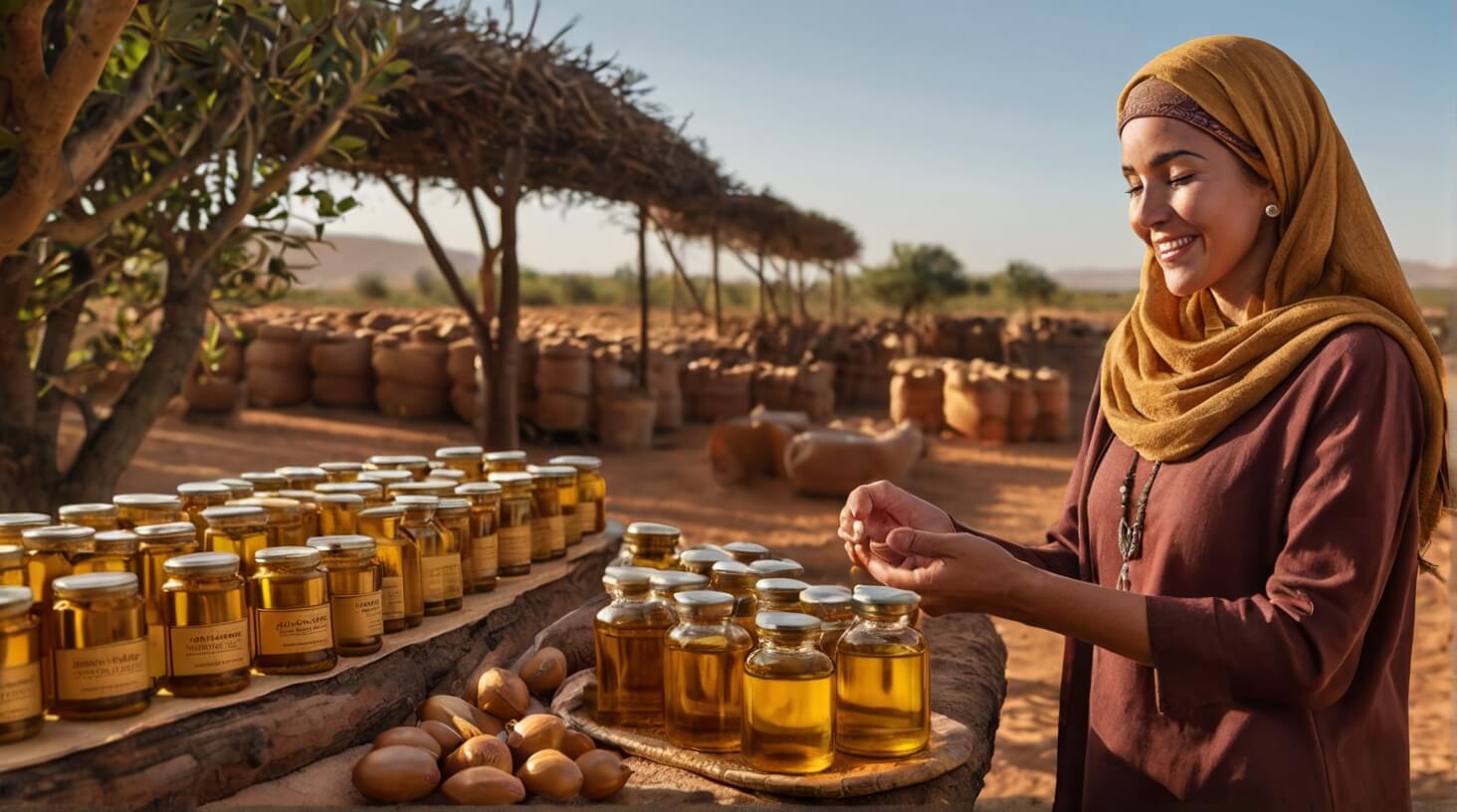
By understanding the consumer benefits and informed choices associated with transparent supply chains in argan oil, you can actively support fair trade practices and contribute to the economic empowerment of women in cooperatives. Transparent supply chains enable you to make informed choices about ethically sourced products, ensuring that your purchase aligns with your values and supports fair trade practices. When you know the origin and production process of argan oil, you can make environmentally conscious decisions that support sustainable practices.
Here are the key consumer benefits and informed choices associated with transparent supply chains in argan oil:
| Consumer Benefits | Informed Choices |
| Support fair trade practices | Choose products with clear traceability |
| Contribute to the economic empowerment of women in cooperatives | Ensure preservation of traditional knowledge |
| Make environmentally conscious decisions | Benefit local communities |
| Receive high-quality, authentic argan oil products | Avoid adulteration or misrepresentation |
By supporting fair trade practices, you are directly contributing to the economic empowerment of women in cooperatives. When you choose products with clear traceability, you are ensuring that the argan oil you purchase is authentic and of high quality. Additionally, by making environmentally conscious decisions, you are supporting sustainable practices that help protect the environment and preserve the argan tree ecosystem. This, in turn, benefits local communities and helps preserve traditional knowledge associated with argan oil production.
Informed consumers play a crucial role in driving positive change in the argan oil industry. By understanding the consumer benefits and informed choices associated with transparent supply chains, you can make a difference by supporting fair trade practices, sustainable practices, and the economic empowerment of women in cooperatives.
Supporting Ethical and Environmental Standards
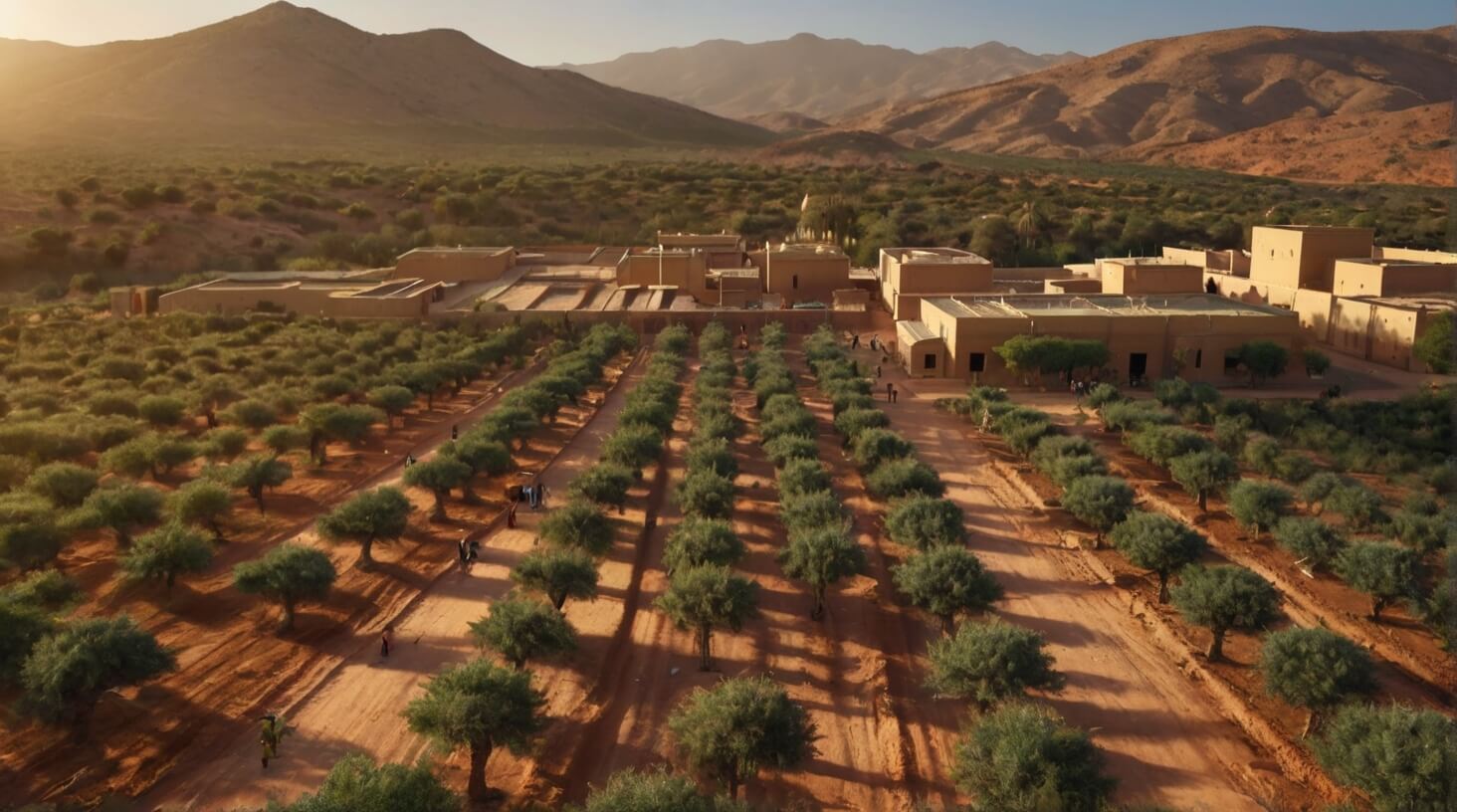
Supporting ethical and environmental standards in the argan oil supply chain is crucial for promoting sustainability and responsible business practices. By prioritizing fair trade practices, biodiversity conservation, and sustainable development, the industry can have a positive impact on both producers and the environment.
Here are three reasons why supporting ethical and environmental standards in the argan oil supply chain is important:
- Fair trade practices: The Fair for Life certification ensures that producers receive fair prices for their products and are supported through social projects. By promoting fair trade, consumers can have confidence that their purchase is benefiting the livelihoods of argan oil producers. This not only improves the economic well-being of these communities but also promotes social justice and equality.
- Biodiversity conservation: The production of argan oil relies on the argan tree, which is endemic to Morocco. By implementing sustainable practices in the production process and conserving argan tree forests, the industry can help protect the biodiversity of this unique ecosystem. Supporting ethical and sustainable production methods contributes to the preservation of the argan tree and its surrounding habitat.
- Sustainable development: The argan oil industry has the potential to contribute to sustainable development in the region. By supporting ethical and environmental standards, the industry can create long-term economic opportunities for local communities while minimizing negative impacts on the environment. This ensures that the benefits of the industry are shared equitably and that future generations can continue to benefit from the resources provided by the argan tree.
Frequently Asked Questions
Why Is Argan Oil Only in Morocco?
Argan oil is only found in Morocco due to the exclusive growth of argan trees in that region. The unique climate and soil conditions in Morocco create an ideal environment for the trees to thrive. Additionally, the traditional extraction methods used by local Berber women have been passed down through generations, contributing to the cultural significance of argan oil production. Moreover, the concentrated production of argan oil in Morocco has a significant environmental impact, as the Argan forest is a UNESCO Biosphere Reserve.
Which Country Produces Argan Oil?
Morocco is the country that produces argan oil, making it a key player in the global argan production and the argan oil market. The production process of argan oil in Morocco involves extracting oil from the kernels of the argan tree, which is unique to the country’s southwest region. The argan oil industry in Morocco not only supports local livelihoods but also contributes to sustainable development and biodiversity conservation efforts.
Is Argan Oil Volatile?
Argan oil can be volatile in terms of its pricing and availability. Factors like weather conditions, harvest yields, and global demand can cause fluctuations in the market. This volatility can make argan oil expensive at times. However, understanding how argan oil is made and its benefits can help you make informed purchasing decisions. Argan oil is extracted from the kernels of the argan tree, and it has numerous benefits for skincare and haircare.
What Is the Peroxide Value of Argan Oil?
The peroxide value of argan oil is a key parameter used in peroxide value analysis, which helps determine the oxidative stability and shelf life estimation of the oil. It measures the level of primary oxidation products present in the oil. A lower peroxide value indicates fresher and higher quality argan oil, while higher values suggest rancidity and decreased shelf life. Monitoring the peroxide value is crucial for maintaining the quality and stability of argan oil.
Related Articles
Manual Argan Oil Harvesting Techniques
Uncover the captivating secrets behind manual Argan oil harvesting techniques, and discover why this ancient practice holds the key to the authenticity and quality of this liquid gold.
Berber-Led Argan Oil Sustainability Initiatives
Marrying environmental conservation and social empowerment, Berber-Led Argan Oil Sustainability Initiatives hold the key to preserving a vital resource and transforming lives.
Fatty Acid Breakdown in Argan Oil
Just when you thought you knew everything about Argan oil, its fatty acid breakdown holds a surprising secret that will leave you wanting to learn more.

